A Cosmic History: Vintage Space Photos Revealed (Gallery)
Goodacre’s 1910 Map of the Moon: Section 12
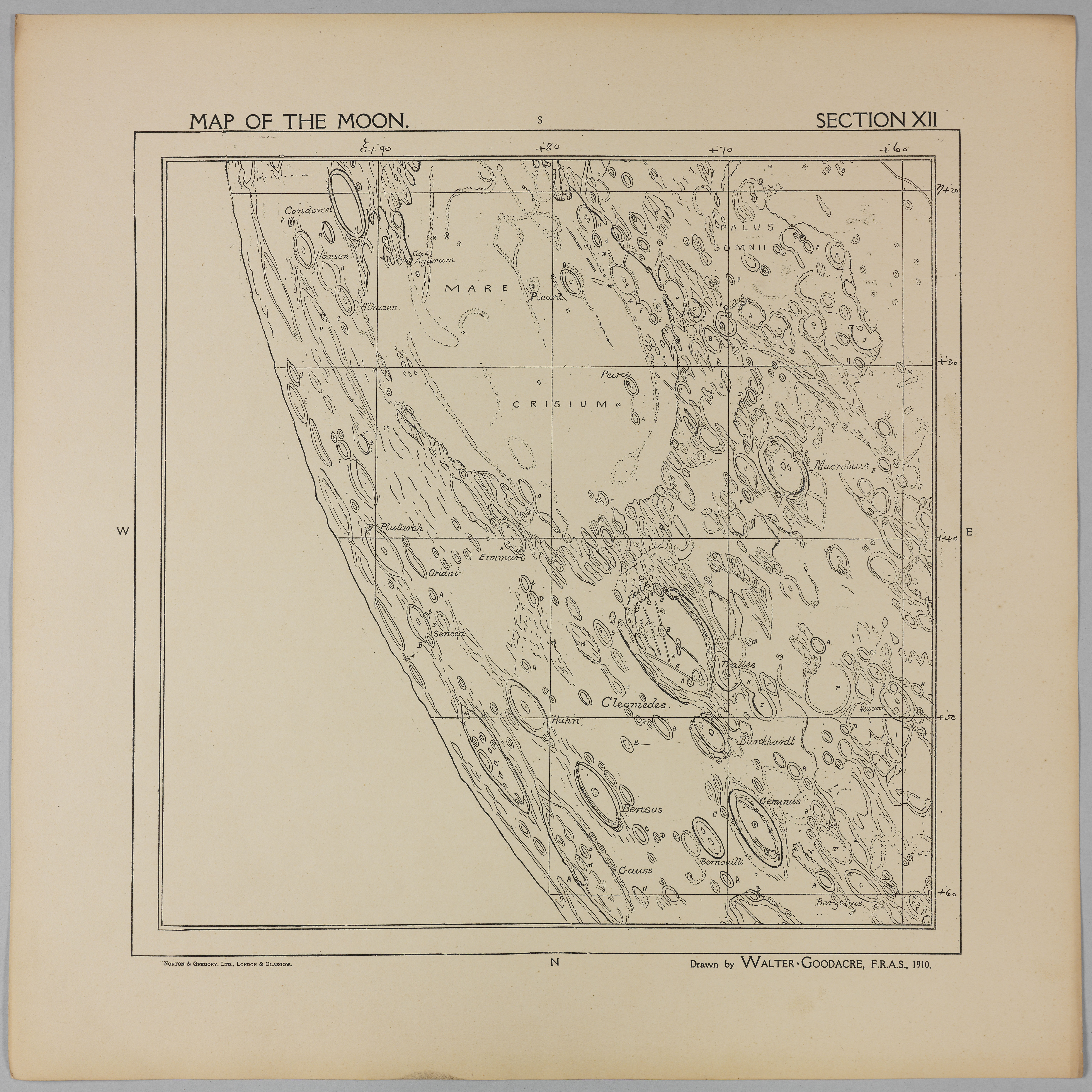
This image shows Section 12 of the 1910 map of the moon publication by Walter Goodacre. Goodacre’s map of the moon is astonishingly detailed, and gives a glimpse back into the days when astronomy was not done with computers, spectrometers and CCD chips, but with human eyes, pens, paper, and the occasional piece of photographic film. [Read the Full Story Here]
Goodacre’s 1910 Map of the Moon: Section 13
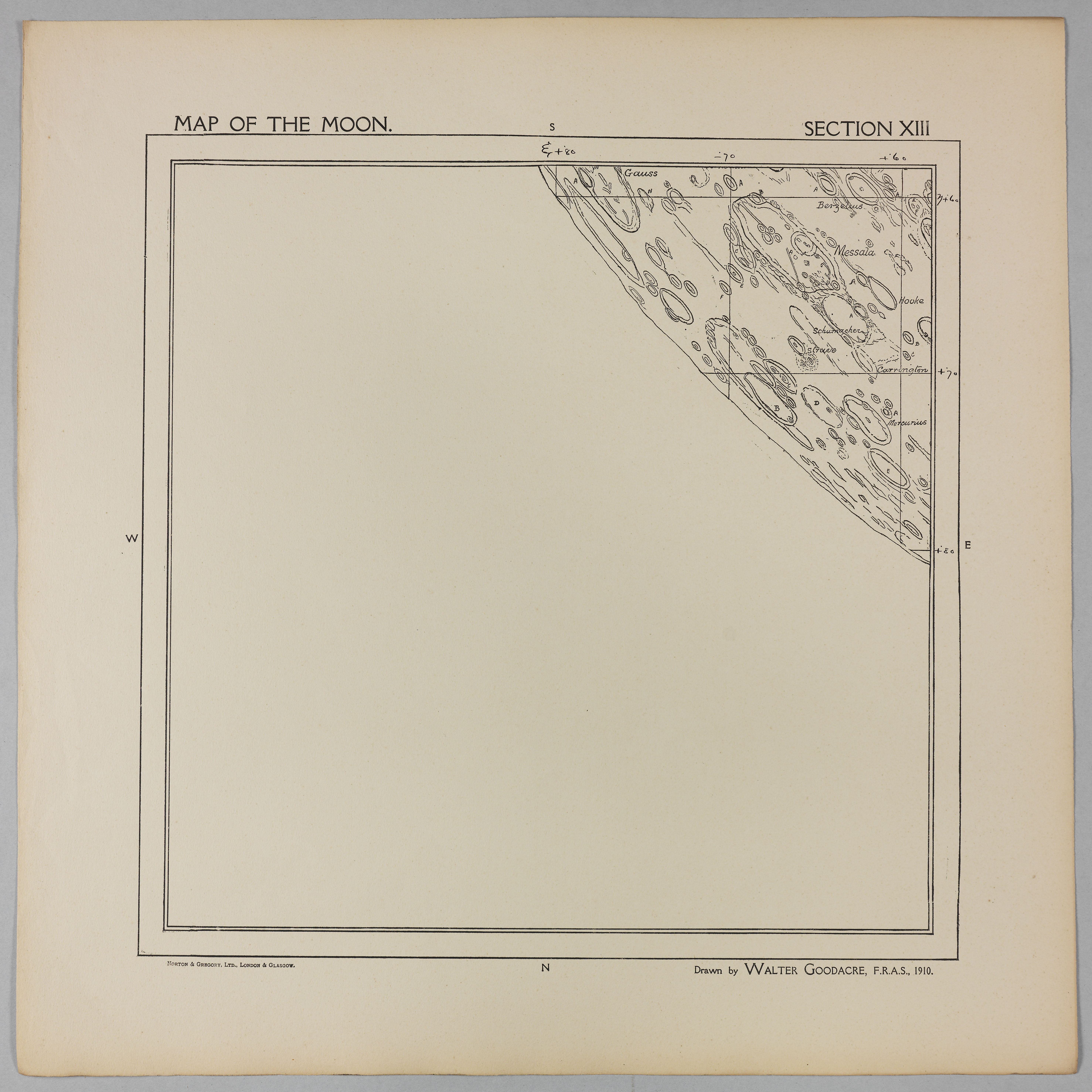
This image shows Section 13 of the 1910 map of the moon publication by Walter Goodacre. Goodacre’s map of the moon is astonishingly detailed, and gives a glimpse back into the days when astronomy was not done with computers, spectrometers and CCD chips, but with human eyes, pens, paper, and the occasional piece of photographic film. [Read the Full Story Here]
Goodacre’s 1910 Map of the Moon: Section 14
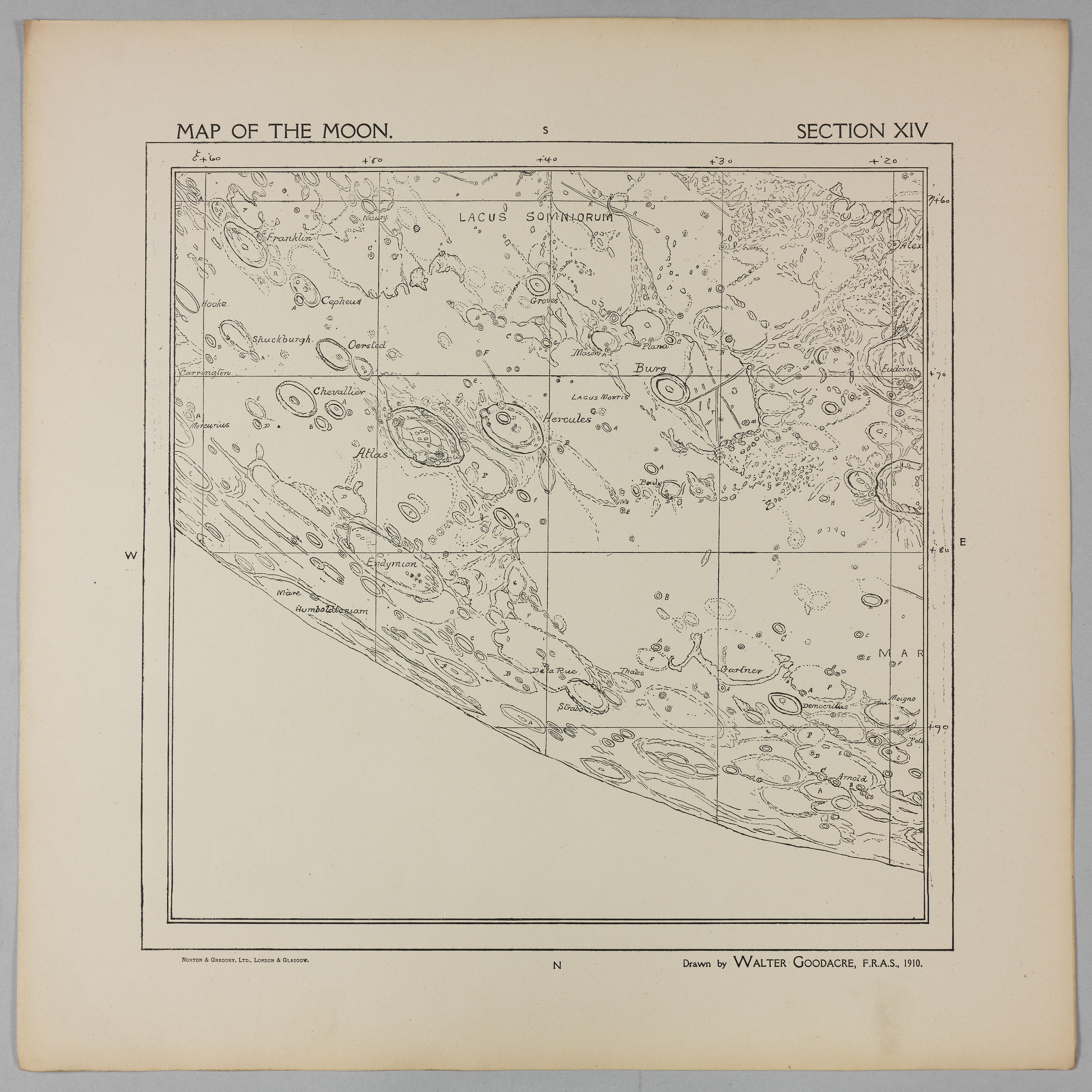
This image shows Section 14 of the 1910 map of the moon publication by Walter Goodacre. Goodacre’s map of the moon is astonishingly detailed, and gives a glimpse back into the days when astronomy was not done with computers, spectrometers and CCD chips, but with human eyes, pens, paper, and the occasional piece of photographic film. [Read the Full Story Here]
Goodacre’s 1910 Map of the Moon: Section 15
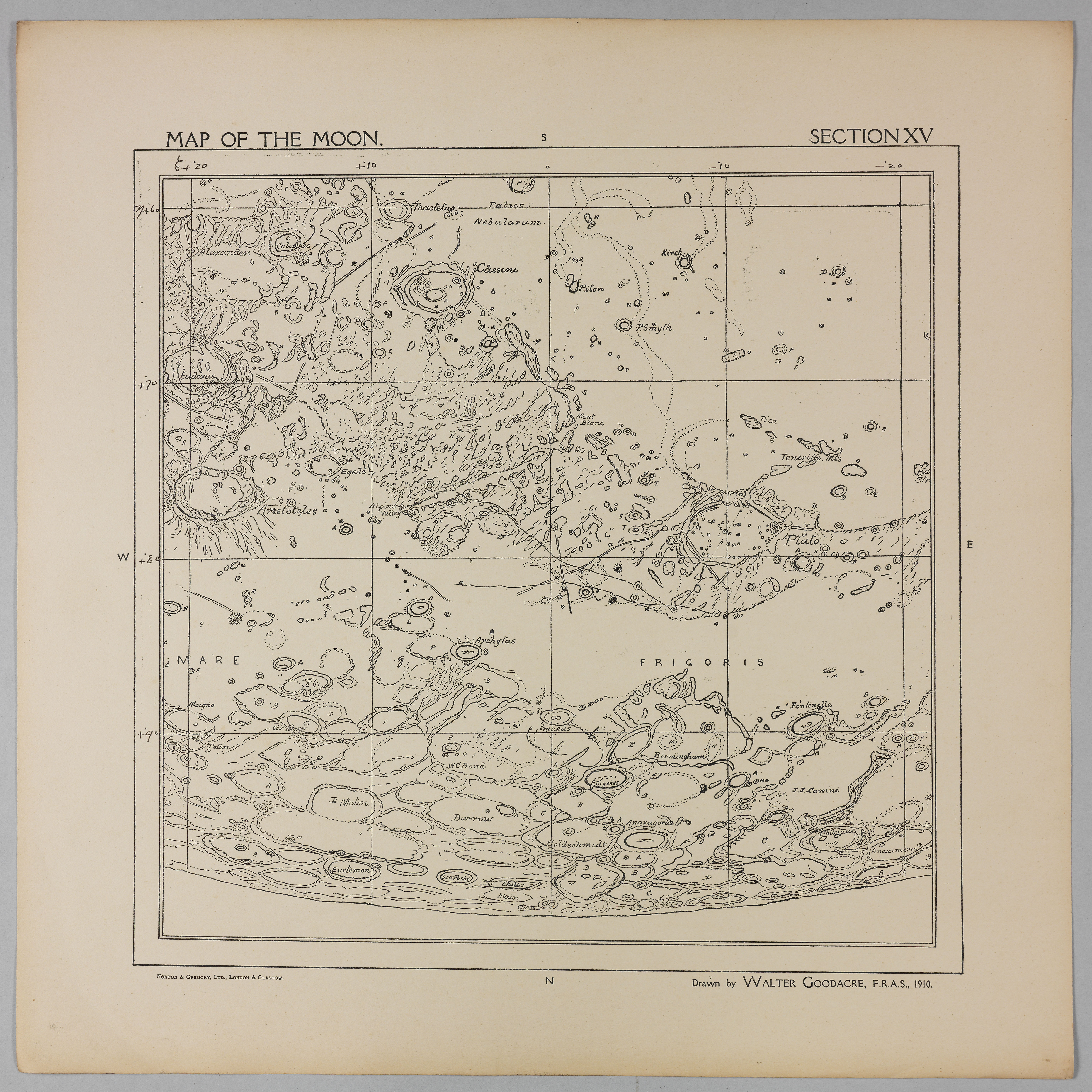
This image shows Section 15 of the 1910 map of the moon publication by Walter Goodacre. Goodacre’s map of the moon is astonishingly detailed, and gives a glimpse back into the days when astronomy was not done with computers, spectrometers and CCD chips, but with human eyes, pens, paper, and the occasional piece of photographic film. [Read the Full Story Here]
Goodacre’s 1910 Map of the Moon: Section 16
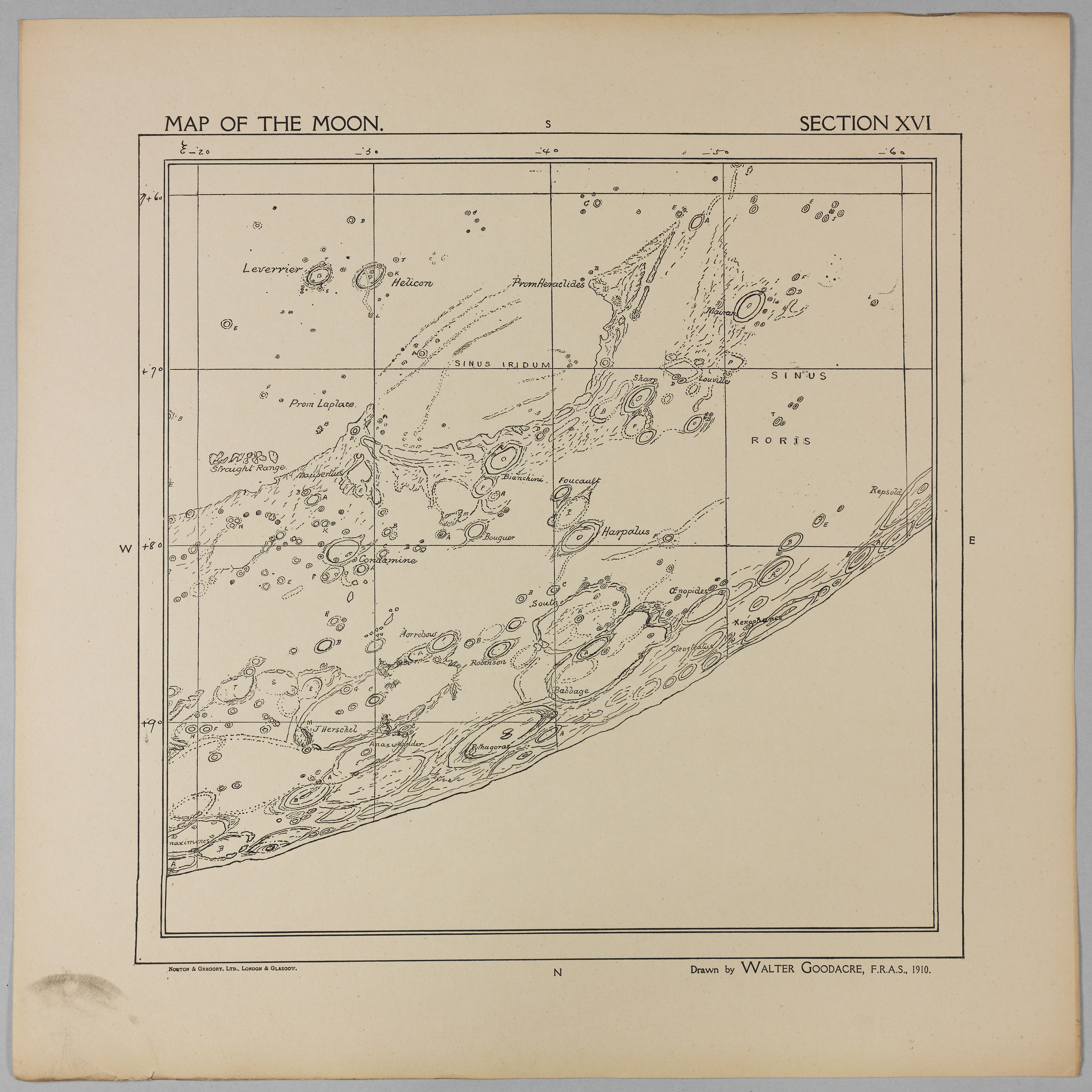
This image shows Section 16 of the 1910 map of the moon publication by Walter Goodacre. Goodacre’s map of the moon is astonishingly detailed, and gives a glimpse back into the days when astronomy was not done with computers, spectrometers and CCD chips, but with human eyes, pens, paper, and the occasional piece of photographic film. [Read the Full Story Here]
Goodacre’s 1910 Map of the Moon: Section 17
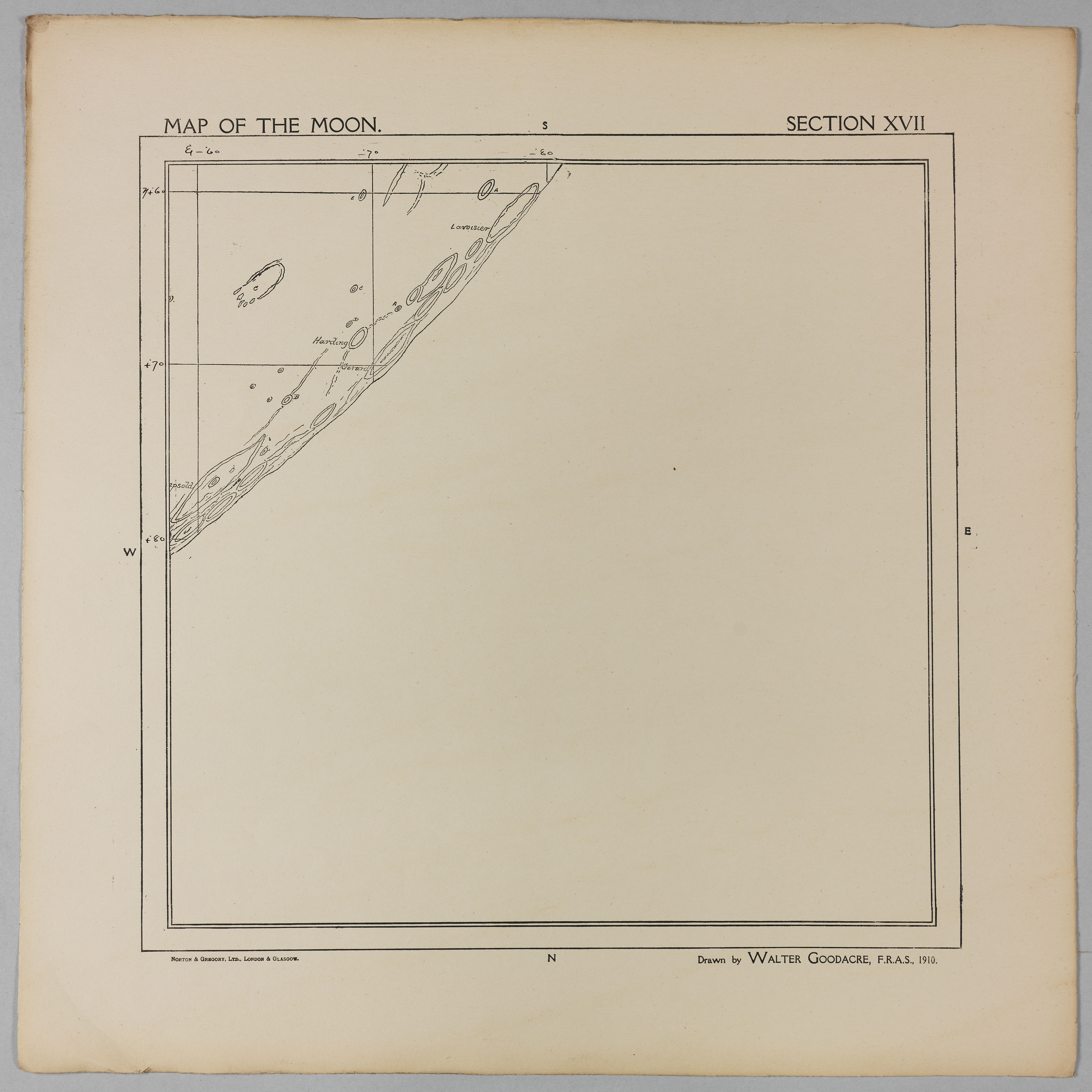
This image shows Section 17 of the 1910 map of the moon publication by Walter Goodacre. Goodacre’s map of the moon is astonishingly detailed, and gives a glimpse back into the days when astronomy was not done with computers, spectrometers and CCD chips, but with human eyes, pens, paper, and the occasional piece of photographic film. [Read the Full Story Here]
Goodacre’s 1910 Map of the Moon: Section 18
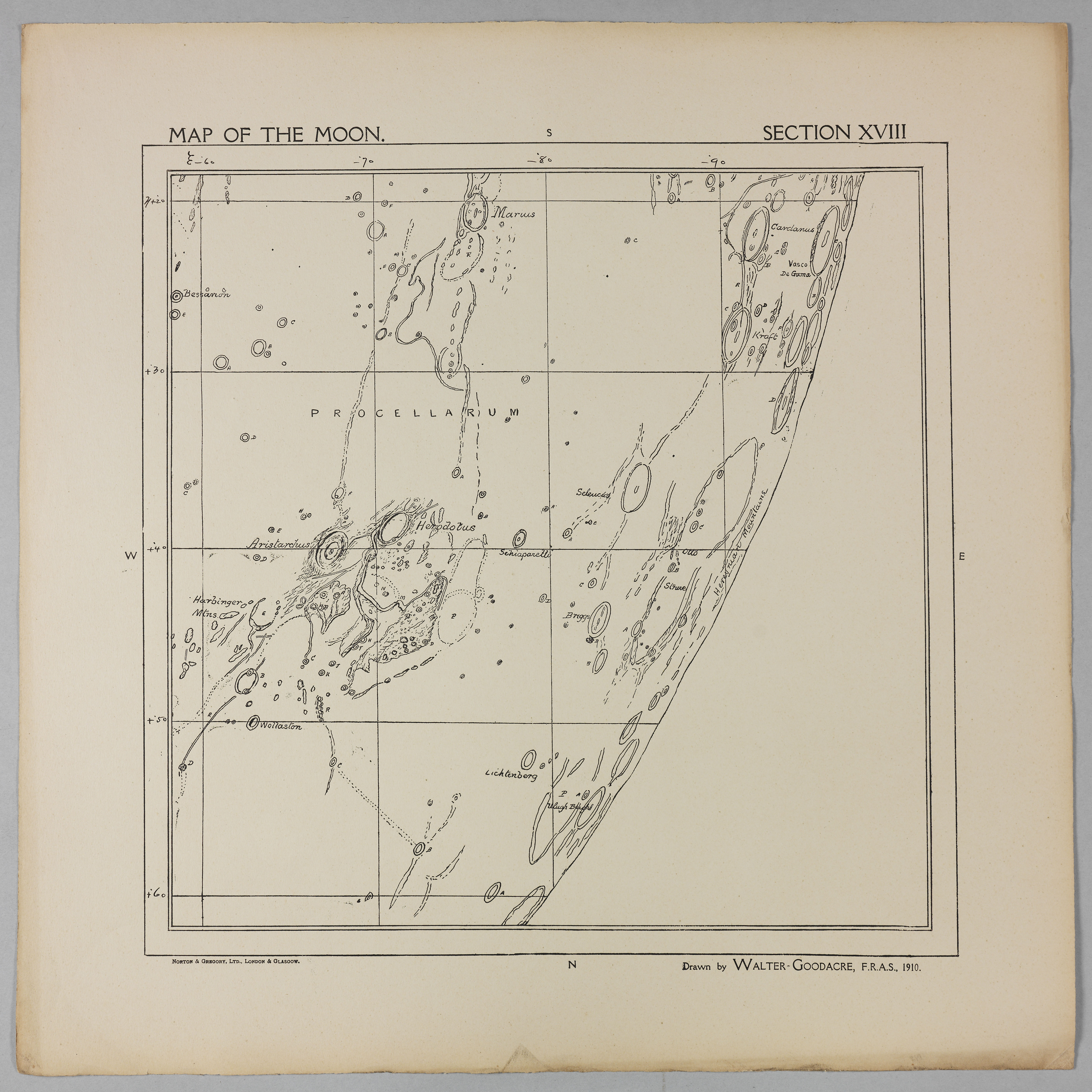
This image shows Section 18 of the 1910 map of the moon publication by Walter Goodacre. Goodacre’s map of the moon is astonishingly detailed, and gives a glimpse back into the days when astronomy was not done with computers, spectrometers and CCD chips, but with human eyes, pens, paper, and the occasional piece of photographic film. [Read the Full Story Here]
Get the Space.com Newsletter
Breaking space news, the latest updates on rocket launches, skywatching events and more!
Goodacre’s 1910 Map of the Moon: Section 19
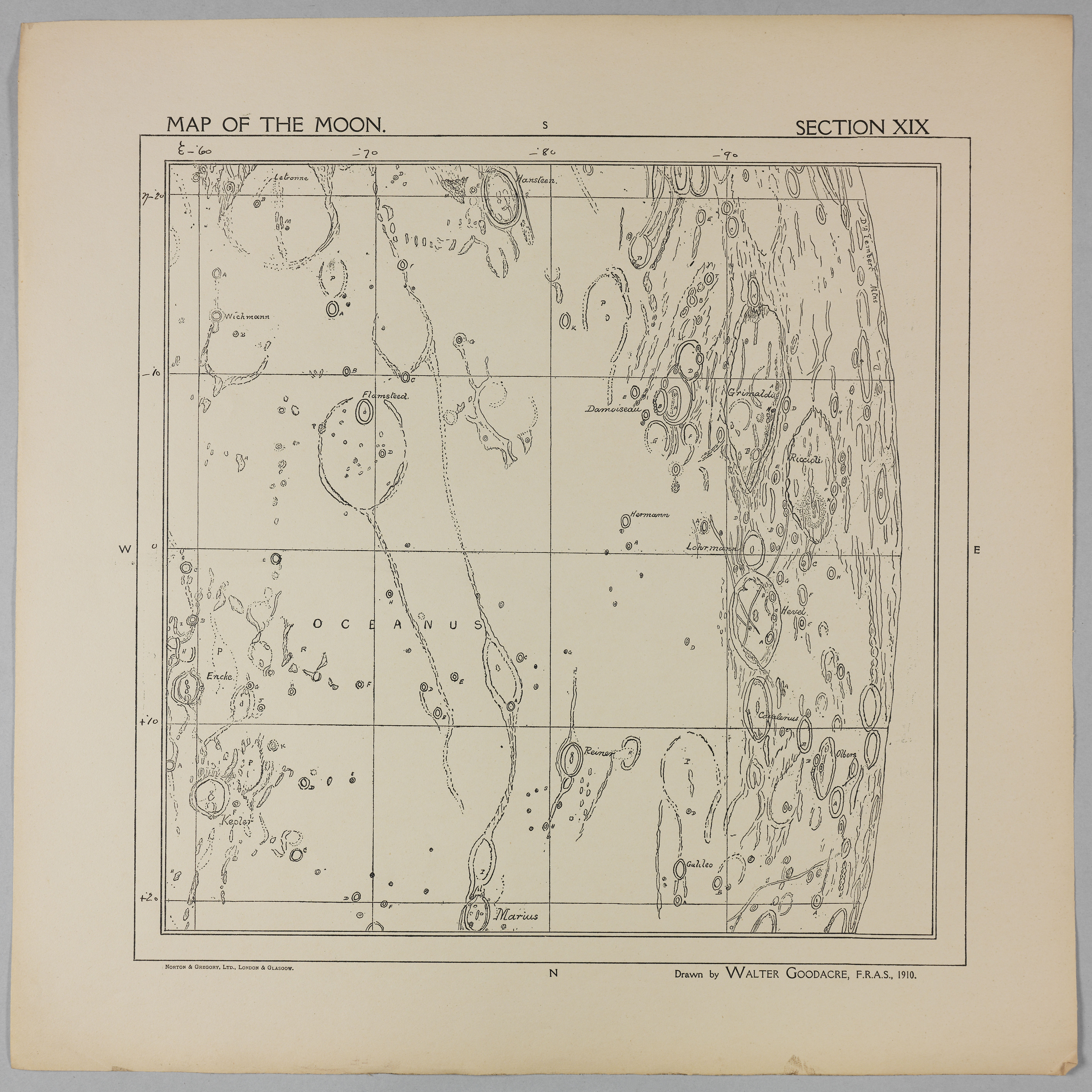
This image shows Section 19 of the 1910 map of the moon publication by Walter Goodacre. Goodacre’s map of the moon is astonishingly detailed, and gives a glimpse back into the days when astronomy was not done with computers, spectrometers and CCD chips, but with human eyes, pens, paper, and the occasional piece of photographic film. [Read the Full Story Here]
Goodacre’s 1910 Map of the Moon: Section 20
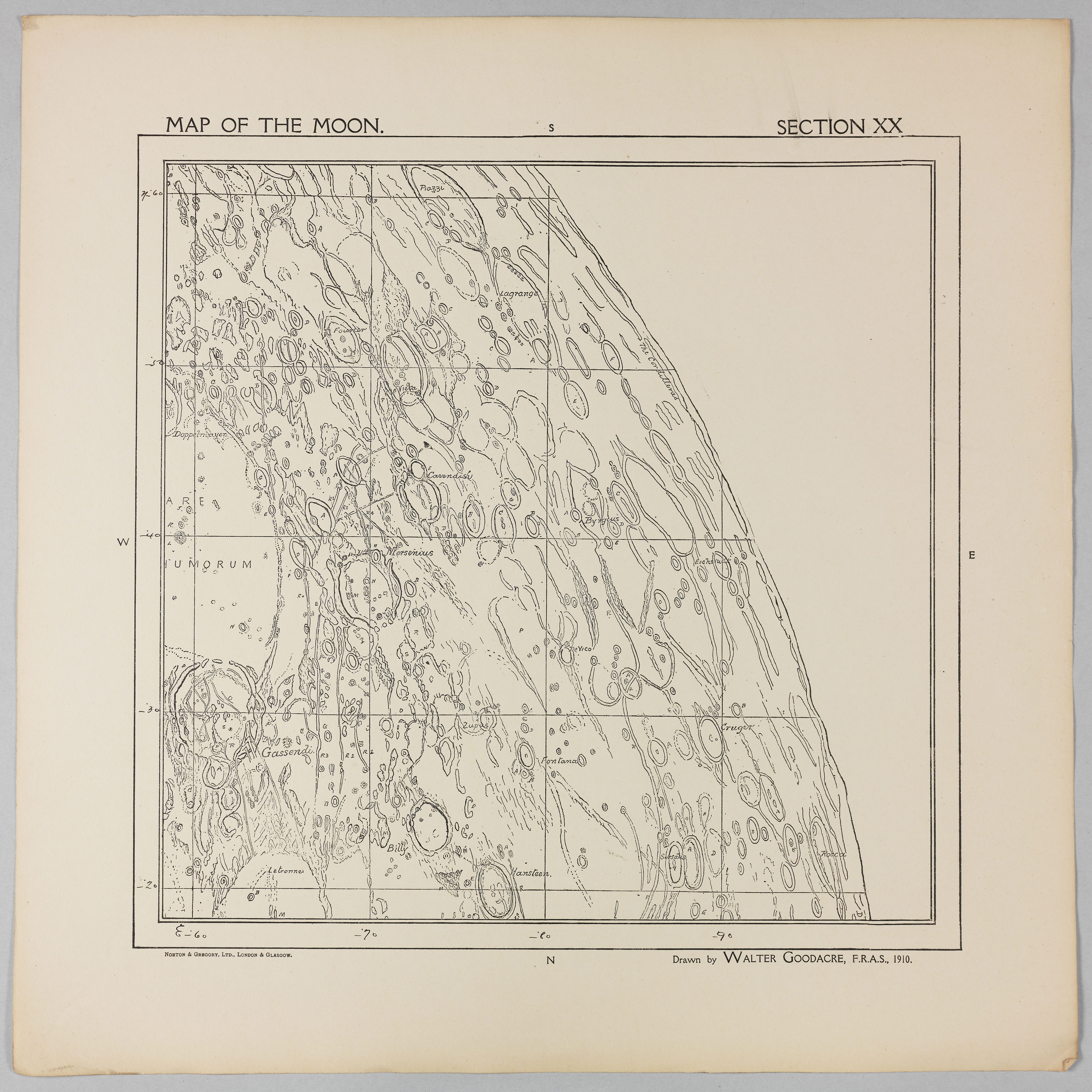
This image shows Section 20 of the 1910 map of the moon publication by Walter Goodacre. Goodacre’s map of the moon is astonishingly detailed, and gives a glimpse back into the days when astronomy was not done with computers, spectrometers and CCD chips, but with human eyes, pens, paper, and the occasional piece of photographic film. [Read the Full Story Here]
Goodacre’s 1910 Map of the Moon: Section 21
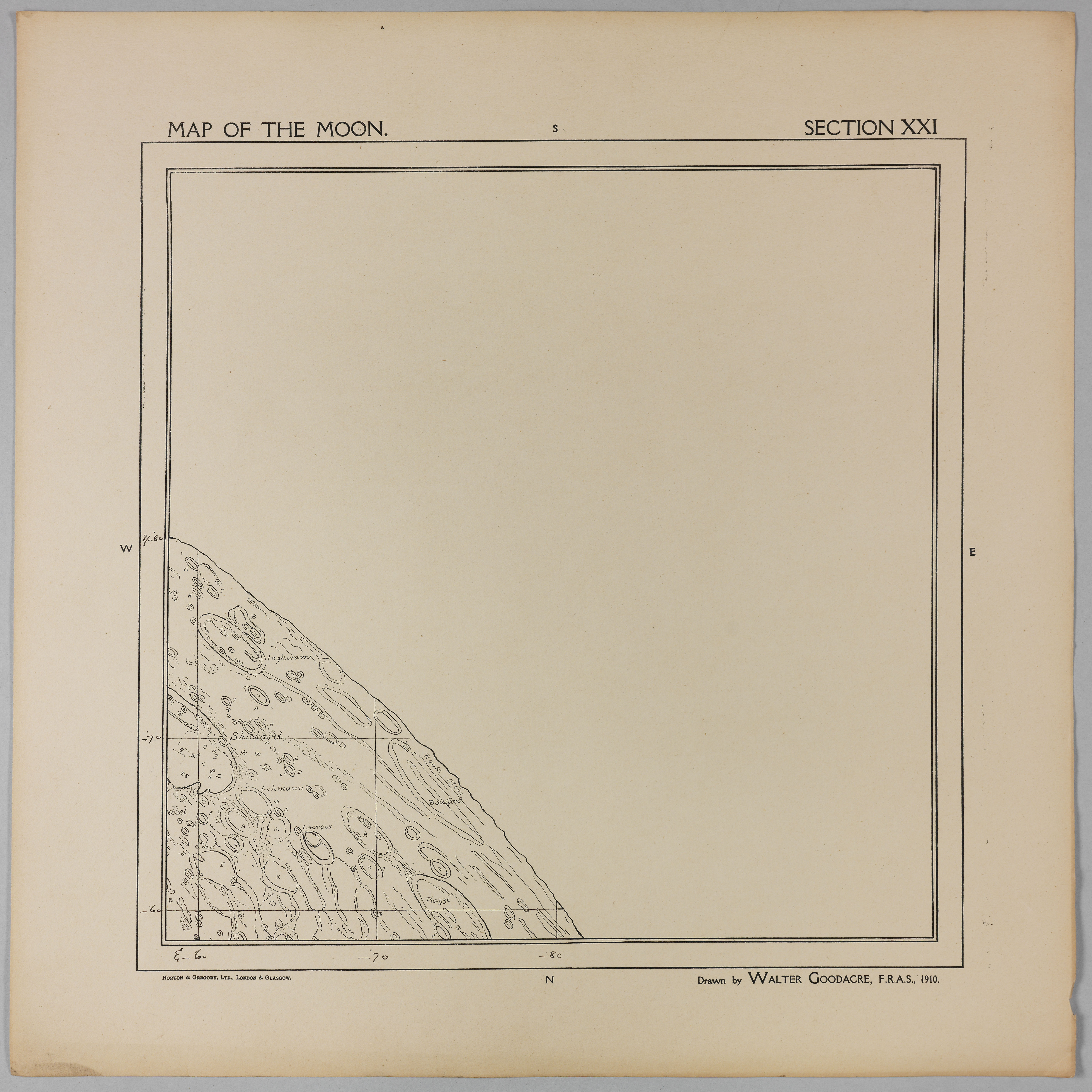
This image shows Section 21 of the 1910 map of the moon publication by Walter Goodacre. Goodacre’s map of the moon is astonishingly detailed, and gives a glimpse back into the days when astronomy was not done with computers, spectrometers and CCD chips, but with human eyes, pens, paper, and the occasional piece of photographic film. [Read the Full Story Here]
Join our Space Forums to keep talking space on the latest missions, night sky and more! And if you have a news tip, correction or comment, let us know at: community@space.com.

Space.com is the premier source of space exploration, innovation and astronomy news, chronicling (and celebrating) humanity's ongoing expansion across the final frontier. Originally founded in 1999, Space.com is, and always has been, the passion of writers and editors who are space fans and also trained journalists. Our current news team consists of Editor-in-Chief Tariq Malik; Editor Hanneke Weitering, Senior Space Writer Mike Wall; Senior Writer Meghan Bartels; Senior Writer Chelsea Gohd, Senior Writer Tereza Pultarova and Staff Writer Alexander Cox, focusing on e-commerce. Senior Producer Steve Spaleta oversees our space videos, with Diana Whitcroft as our Social Media Editor.









